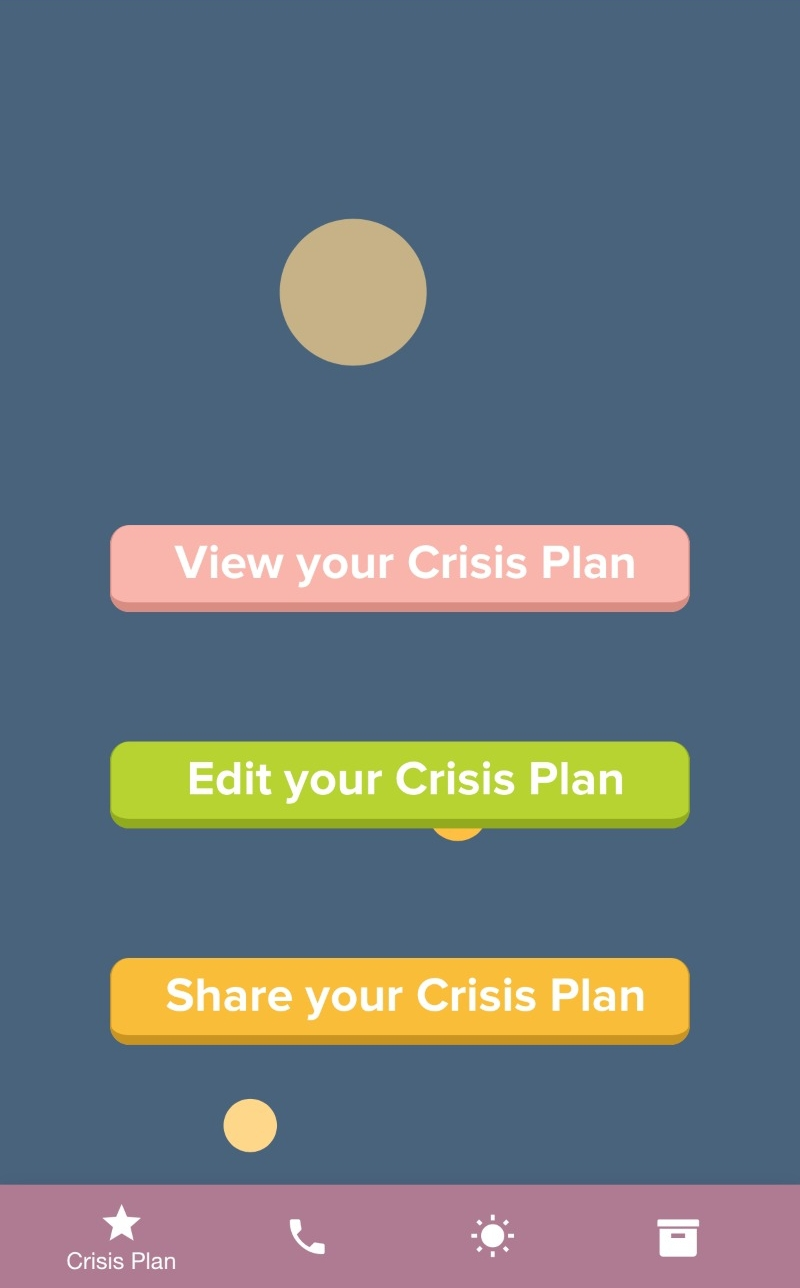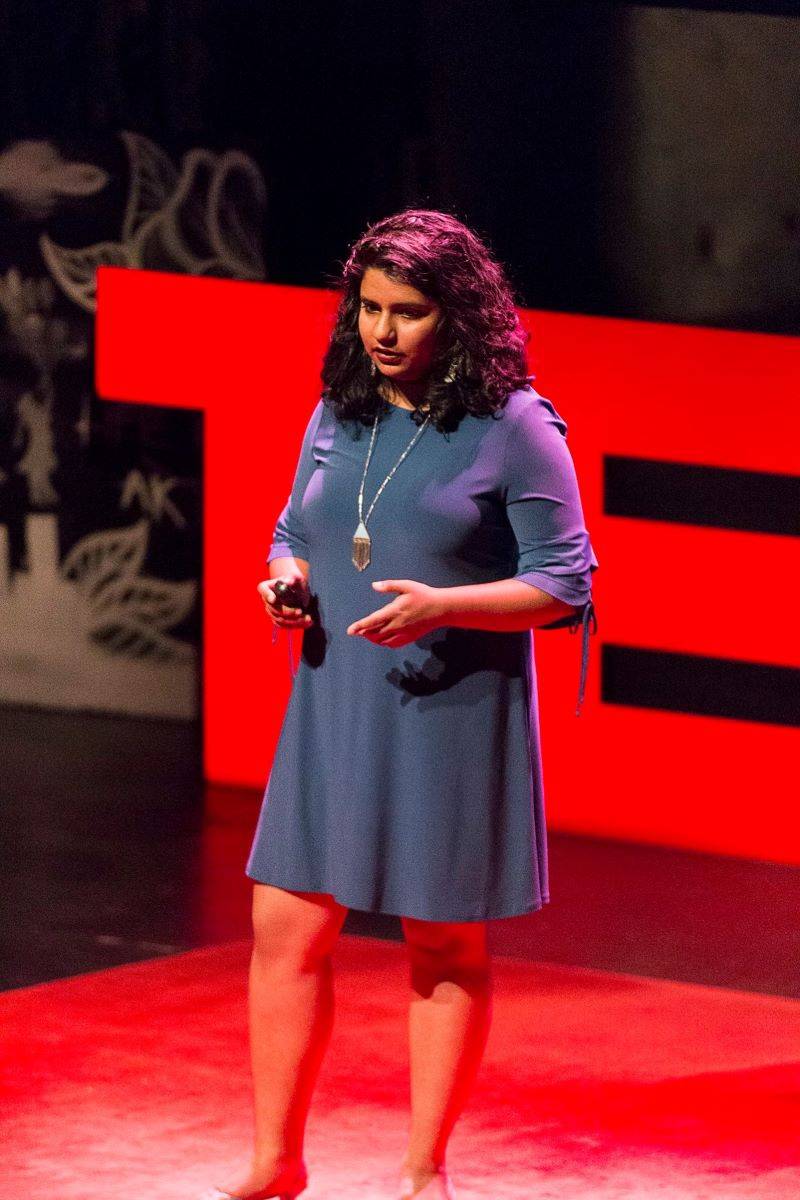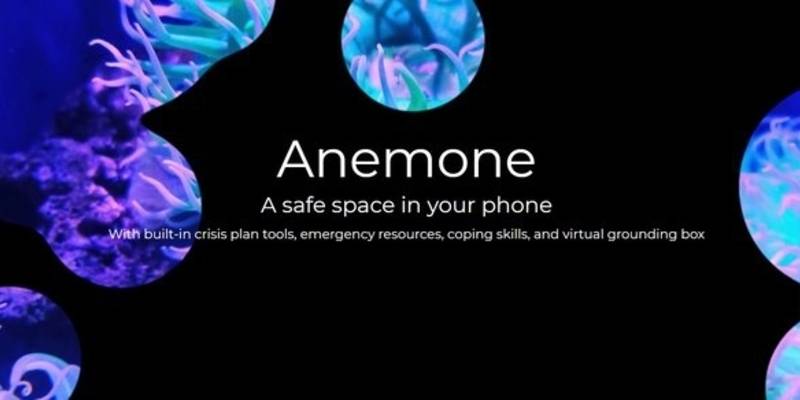Anemone, a new mental health crisis app, launched three weeks ago and is already making a difference for people all over the world. Ananya Cleetus, a Computer Science major at University of Illinois at Urbana-Champaign, created the app with input of mental health professionals.

“App creation was pretty new for me,” said Cleetus. “I had to learn a new language and framework to develop the app. It was pretty interesting because it was something that I hadn’t done before. I had done robotics and prosthetics in the past but working in mental health field is not something I’ve ever had experience with until my own personal struggles with mental health.”
Cleetus has been living back in her hometown of Pittsburgh the past year. She left UIUC partway through her junior year when she was diagnosed with bipolar disorder. “I was really disappointed to go because I wanted to be at my school, I wanted to be with my friends, and I wanted to be studying computer science. But I think in retrospect it ended up being one of the best decisions of my life because it gave me a chance to not only work on myself, but to also develop a tool that can help empower other people. I spend most of my time at home working on this app, Anemone.”

Anemone, available for free on iOS, helps users create a portable crisis plan much like they would create when being discharged from a mental health facility. The app includes emergency resources such as suicide hotlines, text lines, information on local hospitals and centers. It also includes coping skills that Cleetus learned in therapy such as grounding and diversion.
“It has something called a Grounding Box, where the user can upload a photograph and a song,” said Cleetus. It is a digital version of a therapy tool where people have an actual box or space with favorite scents, textures, memories to help them through a period of anxiety or crisis. Cleetus said, “It helps remind them of a positive memory or experience and if they visit that page they can revisit that feeling and they can click on positive affirmations that are built into the app.”
As she showed the Grounding Box an image of her family appeared with stars around them. “I don’t know if you can hear this, but I have a song by John Legend playing. Whenever I feel really bad, I go to this page and I’m reminded that these are the people who are there for me in my life, this is a song that makes me feel calm.”
She consulted with her personal psychiatrist and therapist to decide what to include in the app. “At the time I was in St. Clair Hospital in Pittsburgh, and I also spoke to the lead therapist and psychiatrist there and got feedback on what kinds of things would be useful for people to have on their phone.”
Leaving St. Clair’s gave her more ideas for the app. “Typically when you’re discharged from a psych hospital they have you create something called a Crisis Plan. It’s a packet of papers where you fill out important information about symptoms you may be experiencing, steps you can take, medications you are on, who your emergency contacts are, treatment facilities you prefer. It’s standard at any hospital you’ve been to, they give you this packet, and I had this brainwave one day, ‘Who wants to manage this packet?'”
“When someone’s in a really dark place, the last thing they want to do is to go fumbling around for wherever this piece of paper might be.”
“I decided it’d be easier for someone to have this plan with them on the go, wherever they are. They can prepare for their crisis, it doesn’t matter if they’re here or at school, if they’re traveling, they can always have that information accessible and they can share it with friends and family. You can export it as a PDF, email it, and share it. That makes it easier than handing out physical photocopies, which belongs in another era.”

Cleetus was back in Champaign-Urbana for TEDxUIUC 2019 at Krannert Center. “It was amazing. It was my first time giving a TED-style talk. You basically talk about an idea you think is worth sharing. For me that was an awareness about mental health; having digital tools to combat mental illness.”
“A lot of the other speakers were just incredible,” said Cleetus. “One woman was an Olympic swimmer (Katie Hoff), there was a photographer, someone who had styled Beyoncé. There were these incredible people, and there I was in the middle. It felt kind of jarring at first, definitely a case of impostor syndrome there, which is ironic because someone there was giving a TED talk on impostor syndrome.”
There is absolutely no reason for Ananya Cleetus to feel like an impostor on stage. She created a new style of prosthetic in her junior year of high school, and after receiving a patent was invited to present it at the White House Science Fair with President Obama and Bill Nye the Science Guy. She was one of 32 students to present. “I started another startup at that time and for both of those projects the mayor of Pittsburgh named a day in the city after me, Ananya Cleetus Day.”
“It’s been really hard for me initially not only to work on this app but also to admit that the reason that I need to work on this app because of my personal struggles. It’s not been easy to talk about it, especially coming from my background as a first-generation Indian college student.”
She has been really thankful for all of the feedback she’s gotten on the app. “People really like that they can take this information on the go. These skills are really important, like the coping skills page with mindfulness, coping, and diversion. A lot of people have reached out to me personally and said, ‘Thank you so much. I’ve been struggling with this, and this is exactly what I needed.’ I had a few friends who shared it with their family. A good friend shared it with her mother, who suffers from anxiety, and it was just small things like that that made it such a meaningful process for me.”
“I know it’s difficult but talk to your friends, your family; let them know if they’re in your crisis plan if they are. Make sure that you’re prepared for an emergency. No one likes to admit that they’re in need of a crisis plan for mental health, but it’s always good to be prepared. In creating this app for people and sharing my own story, I know it’s definitely worth it to speak up.”
“I’m a one-man show. I’m looking to get more developers. I just had my own vision, so I went with it. But as we continue to scale I want to add more features and stuff like that, I’d like to get more people.” She’s hoping to add a journaling feature to track moods and perhaps add an online community forum to “encourage people to speak up more and interact because it’s such a taboo topic. It still is.”
Her plans to build Anemone into something even bigger won’t be the only thing keeping her busy. She has been readmitted into Computer Science at UIUC. She will return this fall to finish her degree.
TEDxUIUC photo from Facebook, all others provided by Ananya Cleetus.








